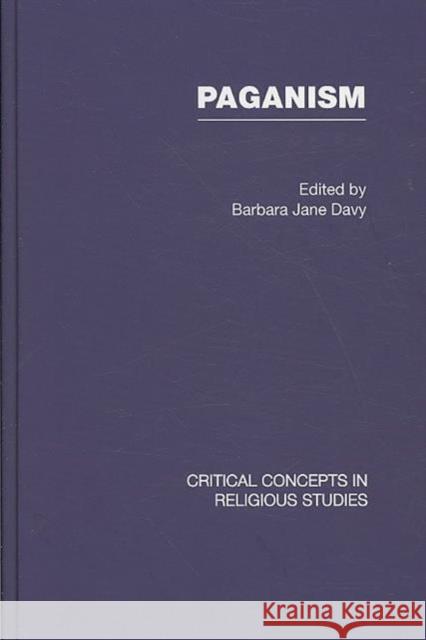Paganism » książka
Paganism
ISBN-13: 9780415438315 / Angielski / Twarda / 2008 / 1056 str.
Contemporary Paganism emerged in Britain in the 1940s and 1950s as a new religious movement, although practitioners understood themselves to be participating in a witchcraft tradition extending back into medieval if not prehistoric times. In recent decades, Pagan Studies has emerged through a plethora of sophisticated anthropological, sociological, and historical studies, and this new three-volume collection from Routledge s Critical Concepts in Religious Studies series brings together the best foundational and cutting-edge scholarship in one mini library . Volume I addresses the emergence of Paganism as a religion. It collects scholarly analyses of the historical evolution of Paganism, and is organized under topics including debates of historical accuracy, influences on the development of Paganism, and the process of routinization in the religion. The second volume addresses the importance of environmentalism in contemporary Paganism, including work on how Pagans think about the natural world, environmental ethics, and related political activism. The final volume addresses the importance of gender issues and feminism in contemporary Paganism, and collects the best research on topics including immanence, embodiment, self-image, and sexuality. Paganism is fully indexed and has a comprehensive introduction, newly written by the editor, which places the collected material in its historical and intellectual context. It is an essential work of reference and is destined to be valued by scholars and students as a vital one-stop research and pedagogic resource."
Contemporary Paganism emerged in Britain in the 1940s and 1950s as a new religious movement, although practitioners understood themselves to be participating in a witchcraft tradition extending back into medieval—if not prehistoric—times.
In recent decades, Pagan Studies has emerged through a plethora of sophisticated anthropological, sociological, and historical studies, and this new three-volume collection from Routledge’s Critical Concepts in Religious Studies series brings together the best foundational and cutting-edge scholarship in one ‘mini library’.
Volume I addresses the emergence of Paganism as a religion. It collects scholarly analyses of the historical evolution of Paganism, and is organized under topics including debates of historical accuracy, influences on the development of Paganism, and the process of routinization in the religion. The second volume addresses the importance of environmentalism in contemporary Paganism, including work on how Pagans think about the natural world, environmental ethics, and related political activism. The final volume addresses the importance of gender issues and feminism in contemporary Paganism, and collects the best research on topics including immanence, embodiment, self-image, and sexuality.
Paganism is fully indexed and has a comprehensive introduction, newly written by the editor, which places the collected material in its historical and intellectual context. It is an essential work of reference and is destined to be valued by scholars and students as a vital one-stop research and pedagogic resource.











